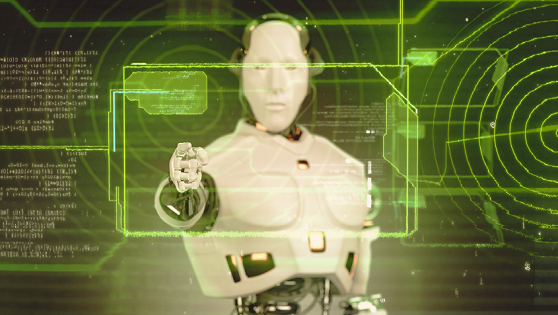
Artificial intelligence (AI) has rapidly transformed industries, reshaping how we interact, work, and live. As we approach 2025, advancements in AI promise even more groundbreaking changes. In this article, we explore the expected innovations, challenges, and ethical considerations around Artificial Intelligence for 2025, providing an in-depth look at how it will impact various sectors.
Key Artificial Intelligence Innovations to Expect by 2025
- AI in Healthcare: Personalized Medicine and Diagnosis By 2025, AI is anticipated to revolutionize healthcare by enabling personalized medicine. Through data analysis, AI algorithms will assist doctors in diagnosing diseases faster and more accurately. Machine learning will allow for early detection of conditions such as cancer and cardiovascular diseases, leading to better treatment plans tailored to each patient’s unique genetic profile.
- Automated Customer Service with Enhanced AI Models As natural language processing (NLP) and machine learning evolve, AI will make customer service more responsive and efficient. Chatbots and virtual assistants, powered by AI, will handle complex queries with human-like understanding, providing businesses with scalable customer support. This automation reduces costs and response times while improving customer satisfaction.
- Manufacturing and Robotics: Greater Efficiency and Safety In manufacturing, AI and robotics will improve productivity, precision, and safety by 2025. Smart factories equipped with AI-driven robots can reduce human error and increase production efficiency. AI algorithms will also predict machinery breakdowns, enabling proactive maintenance that minimizes downtime.
- Financial Sector: AI in Risk Assessment and Fraud Prevention AI algorithms will further shape the financial sector by enhancing risk assessment, fraud prevention, and personalized financial services. Machine learning models will analyze vast amounts of data in real-time, identifying fraudulent activities before they impact users. These AI tools can also provide tailored financial advice, guiding users on investments, savings, and loans.
- Smart Cities and Environmental Impact AI will play a vital role in the development of smart cities, contributing to sustainable urban environments. Through AI-driven data analysis, cities will manage energy consumption more efficiently, reduce waste, and monitor pollution. Autonomous vehicles, public transport optimization, and traffic management are other areas where AI will support urban planning and environmental sustainability.
Challenges and Ethical Concerns Surrounding Artificial Intelligence in 2025
- Data Privacy and Security The integration of AI in daily life brings significant concerns regarding data privacy and security. As AI algorithms collect and analyze personal data, companies must ensure robust security measures to prevent data breaches. Stricter regulations on data usage and ownership may also arise to safeguard user privacy.
- AI Bias and Fairness AI systems often reflect biases present in their training data, potentially leading to unfair treatment across different demographics. Ensuring that AI systems are trained on diverse, unbiased data is essential to make AI fair and inclusive. Ethical guidelines are increasingly important as AI becomes part of critical decision-making in areas like hiring, healthcare, and criminal justice.
- Job Displacement and Workforce Changes Automation through AI could potentially displace jobs in various industries, raising concerns about unemployment. While AI will create new job roles, there may be a skills gap as workers adapt to new technology-focused positions. Companies and governments are expected to invest in training programs to prepare the workforce for AI-related roles.
Preparing for an AI-Driven Future: How to Adapt
- Reskilling and Upskilling the Workforce Preparing workers for AI integration is crucial. Educational institutions and businesses can provide training programs focused on AI, machine learning, and data analytics, allowing workers to adapt to new roles and remain competitive in the job market.
- Adopting AI Ethically Companies should adopt AI responsibly, balancing innovation with ethical considerations. Transparent algorithms, regular audits for biases, and clear data policies are essential to build public trust in AI technologies.
- Investing in AI Research and Development Governments and businesses should prioritize R&D to stay at the forefront of AI advancements. Public-private partnerships can drive AI innovations, leading to national and global competitiveness in the tech landscape.
Conclusion: Embracing AI’s Potential While Mitigating Risks
As we look toward 2025, artificial intelligence will play a transformative role across multiple sectors, from healthcare to urban planning. While the benefits are substantial, it’s essential to address challenges such as data privacy, job displacement, and ethical concerns. By fostering a responsible approach to AI adoption, society can leverage AI’s full potential to improve quality of life, efficiency, and sustainability.


